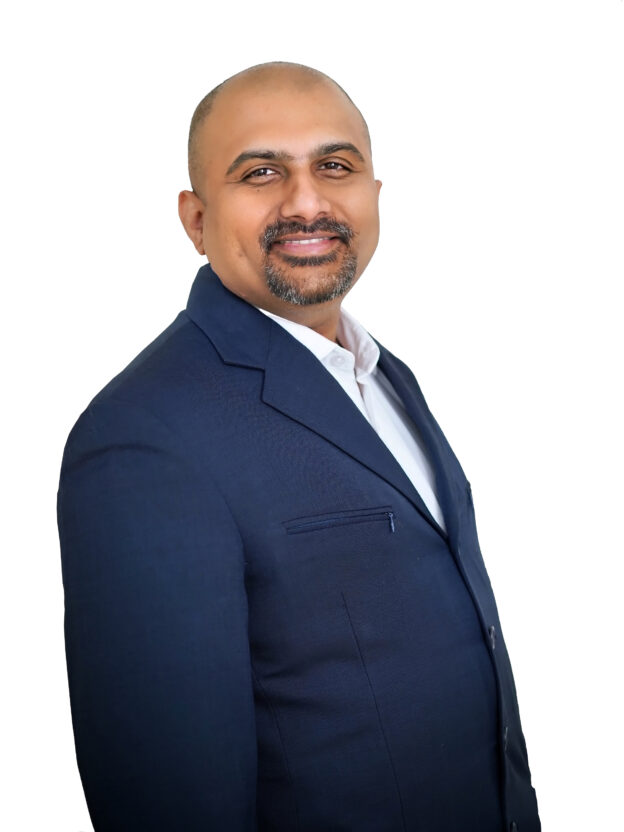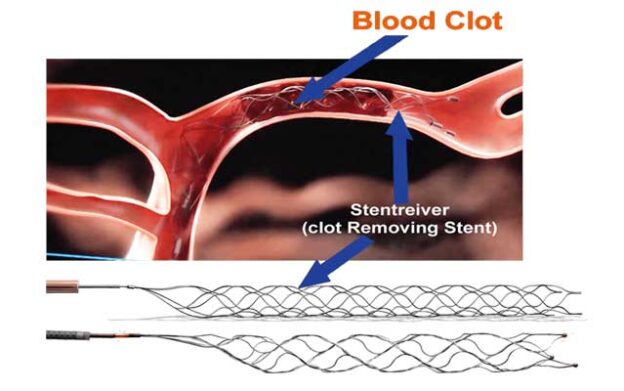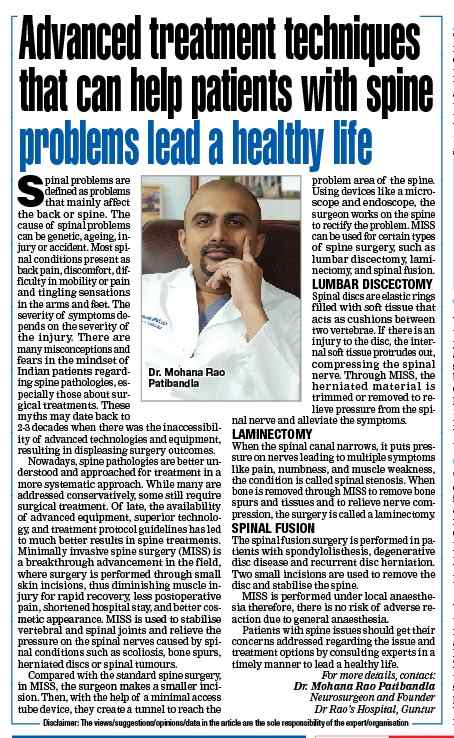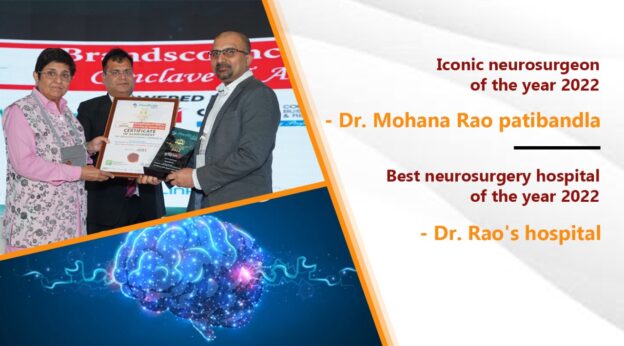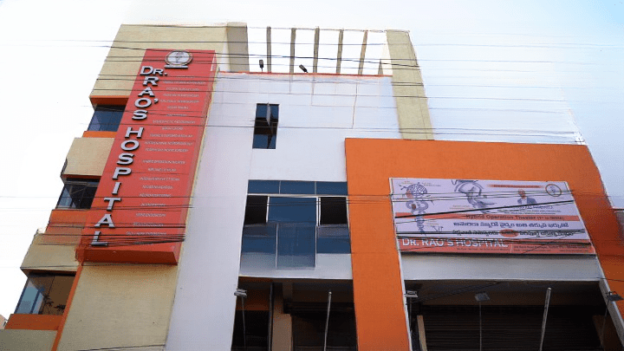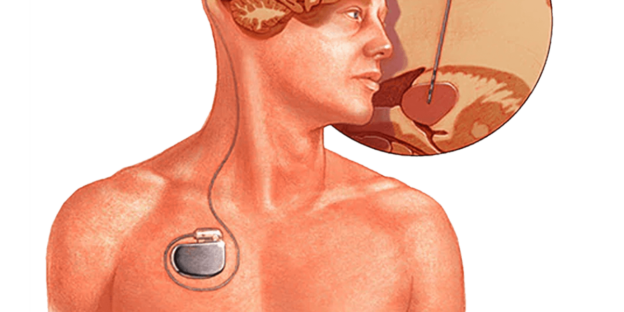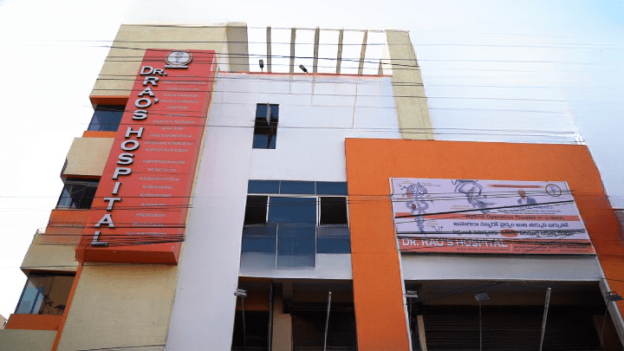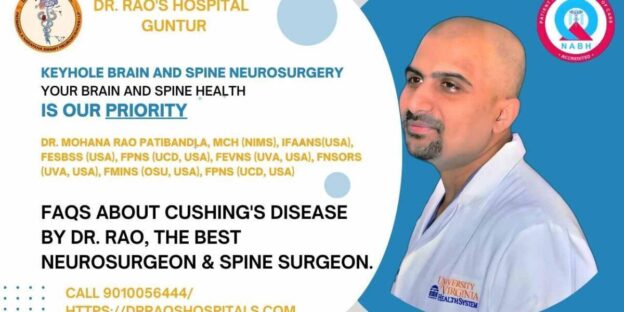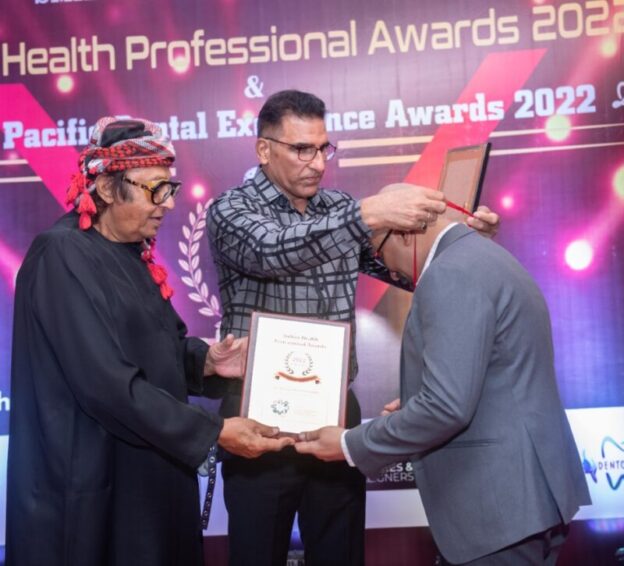Top Neurosurgeons in India: Brain, Spine, & Endovascular Surgery
Famous Brain Doctors: Leaders in Neurological Care
When treating complex brain conditions, having the right medical expert is crucial. Some of the world’s most famous brain doctors have gained global recognition for their work in neurosurgery, including Dr. Mohana Rao Patibandla, a highly skilled neurosurgeon from India who specializes in brain and spine surgeries. Dr. Rao has gained recognition in the global medical community for performing life-saving brain tumor surgeries and minimally invasive spine surgeries.
Across the world, neurosurgeons push the boundaries of science and medicine. From pioneers like Dr. Walter Dandy and Dr. Harvey Cushing in the US to modern innovators like Dr. Rao, brain doctors consistently change the landscape of neurological treatment.
Neurology Surgery List: Procedures that Transform Lives
Neurological surgeries are diverse, covering conditions from epilepsy to brain tumors. The neurology surgery list includes:
- Craniotomies
- Deep brain stimulation (DBS)
- Aneurysm clipping
- Brain tumor excisions
- Keyhole surgeries
- Minimally invasive spine surgeries
In India, one of the most advanced neurosurgical techniques is keyhole neurosurgery, a minimally invasive method for treating brain tumors and spine diseases. Dr. Rao’s Hospital in Guntur has become a leader in these advanced neurosurgical procedures, combining cutting-edge technology with extensive expertise.
Neurology Spine Surgery: Minimally Invasive Spine Procedures in India
Spine issues can be debilitating, and neurology spine surgery has advanced significantly to offer minimally invasive techniques for a wide variety of spinal problems. Traditional spine surgeries often required large incisions and extended recovery periods. However, Dr. Rao’s minimally invasive spine surgery in India offers quicker recovery times, smaller incisions, and less postoperative pain.
With India becoming a hub for minimally invasive neurosurgery, patients worldwide seek affordable treatment. At Dr. Rao’s Hospital, patients can access world-class spine care, including advanced robotic-assisted and laser spine surgeries.
Top Neuroscience Hospitals in the US: Global Pioneers in Neurology
While India has become a leader in affordable medical tourism for neurological care, top neuroscience hospitals in the US continue to be pioneers in research and neurosurgery. Notable institutions include:
- Mayo Clinic (Rochester, MN)
- Cleveland Clinic (Cleveland, OH)
- Johns Hopkins Hospital (Baltimore, MD)
- Massachusetts General Hospital (Boston, MA)
These hospitals offer cutting-edge research and advanced neurosurgical procedures. However, for many international patients, the US treatment cost is prohibitive. India offers a significant advantage in this regard, combining top-tier medical care with affordability.
Best Doctor in Neurology: Global Experts for Brain and Spine Treatment
Finding the best neurology doctor is essential when facing serious neurological issues. Patients worldwide look for specialists like Dr. Rao, a neurosurgeon known for his skills in treating brain tumors, spine disorders, and complex vascular conditions. Dr. Rao’s commitment to minimally invasive procedures makes him one of the top neurosurgeons in India.
In India, Dr. Rao stands out as a leader in brain and spine care. He offers a holistic approach to treating neurological diseases and disorders. His expertise spans various areas of neurology, ensuring that patients receive comprehensive treatment tailored to their unique needs.
Neurosurgery Procedures List: Cutting-Edge Treatments
The field of neurosurgery continues to evolve, with new technologies and procedures constantly emerging. Here are some standard procedures on the neurosurgery procedures list:
- Endoscopic brain surgeries
- Stereotactic radiosurgery
- Spinal fusion surgeries
- Laminectomy
- Vascular neurosurgery
- Microdiscectomy
Dr. Rao’s Hospital in Guntur is at the forefront of these innovations, particularly in minimally invasive neurosurgery in India. By utilizing these advanced techniques, patients experience fewer complications and faster recoveries.
Neurosurgical Institute: Centers for Excellence
A neurosurgical institute represents a center of excellence, providing specialized care for patients with brain and spine disorders. Dr. Rao’s Hospital is a premier spine and brain neurosurgery center, offering comprehensive treatment for conditions ranging from brain tumors to complex spinal surgeries. Its commitment to patient care and affordability sets the hospital apart, making it a top choice for affordable medical tourism in India.
Neuro Care Near Me: World-Class Treatment in Guntur
Patients often search for neuro care near me when seeking immediate treatment for neurological conditions. Dr. Rao’s Hospital in Guntur offers world-class neurology and neurosurgical care in India, ensuring that patients have access to the best possible treatments without traveling far from home.
For international patients, Dr. Rao’s Hospital offers comprehensive medical tourism packages, ensuring that patients receive top-tier care at an affordable cost.
Doctors Hospital Neurologist: Multidisciplinary Expertise
When dealing with brain and spine conditions, it is essential to have a doctors hospital neurologist who works closely with neurosurgeons to provide a multidisciplinary approach. At Dr. Rao’s Hospital, the neurology department works hand in hand with the neurosurgery team, ensuring that every patient receives comprehensive care. This collaboration allows for better outcomes in surgeries and overall treatment plans.
Neurologist Doctor Near: Advanced Care for Local and Global Patients
Patients looking for a neurologist doctor near can rely on Dr. Rao and his team of experts. As one of the top neurosurgeons in India, Dr. Rao specializes in treating a wide range of neurological disorders, including brain tumors, epilepsy, and spinal cord injuries.
India Spine Surgeons: Experts in Minimally Invasive Procedures
When searching for India spine surgeons, Dr. Rao’s name stands out due to his extensive experience and successful track record. His focus on minimally invasive procedures allows patients to recover faster and experience less postoperative discomfort. Whether you need spine fusion surgery or a simple microdiscectomy, Dr. Rao’s Hospital has the latest technology and techniques to ensure optimal outcomes.
Best Brain Tumor Hospital in the World: Dr. Rao’s Hospital, Guntur
Many consider Dr. Rao’s Hospital one of the world’s best brain tumor hospitals. The hospital has state-of-the-art facilities, advanced imaging technology, and an expert team of surgeons and neurologists. For patients dealing with complex brain tumors, Dr. Rao’s experience in keyhole neurosurgery offers a minimally invasive option with excellent results.
India Spine Surgery: Affordable and World-Class Treatment
Patients seeking spine surgery in India are increasingly choosing Dr. Rao’s Hospital for its reputation as a leader in spine care. Whether treating herniated discs, degenerative spine conditions, or performing spinal fusions, Dr. Rao is known for his precision and expertise. The hospital provides affordable spine surgeries without compromising on quality.
Best Neurosurgeon in India for Spine Surgery
When it comes to spine surgery, Dr. Rao is regarded as the best neurosurgeon in India. His extensive experience in performing minimally invasive procedures ensures patients have access to top-tier care.
Best Neurosurgeon in India for Brain Tumor Surgery
For brain tumor treatments, Dr. Rao is recognized as the best neurosurgeon in India for brain tumor surgery. His expertise in handling complex cases, including tumors in difficult-to-reach brain areas, sets him apart as a leader in the field.
Best Neurosurgeon in India for Brain Surgeries
Patients worldwide travel to Dr. Rao’s Hospital, where he is recognized as the best neurosurgeon in India for brain surgeries. His minimally invasive techniques reduce the risks associated with traditional brain surgeries, leading to faster recovery times and better outcomes.
Keyhole Neurosurgery: A Revolutionary Technique
Keyhole neurosurgery is a cutting-edge, minimally invasive technique Dr. Rao specializes in. This approach allows surgeons to perform complex brain surgeries through a small incision, reducing trauma to the patient and speeding up recovery.
Best Interventional Neurologist in Guntur
Dr. Rao is also known as the best interventional neurologist in Guntur, providing life-saving treatments for stroke, aneurysms, and other vascular conditions of the brain.
Best Endovascular Neurosurgeon in Guntur
Regarding treating conditions like aneurysms and AVMs, Dr. Rao is regarded as the best endovascular neurosurgeon in Guntur, offering minimally invasive procedures that improve patient outcomes.
Conclusion: Dr. Rao’s Hospital, Guntur—The Best Brain, Spine, and Endovascular Center in India
Dr. Rao’s Hospital in Guntur is not only the best choice for neurosurgery in India but also ranks among the best in the world for minimally invasive brain and spine surgeries. With a focus on affordable medical tourism, the hospital provides comprehensive care for local and international patients. Whether you need a spine surgeon, a brain tumor expert, or an interventional neurologist, Dr. Rao’s Hospital delivers world-class care with personalized attention.
For more information on neurosurgical procedures or to book a consultation with Dr. Rao, contact Dr. Rao’s Hospital, Guntur.
Dr. Rao’s Contact Information:
- Phone: 9010056444, 9010057444
- Email: info@drraoshospitals.com
- Address: Old Bank St, GV Thota, beside AK Biryani Point, Guntur, Andhra Pradesh 522001
- Website: Dr. Rao’s Hospital

